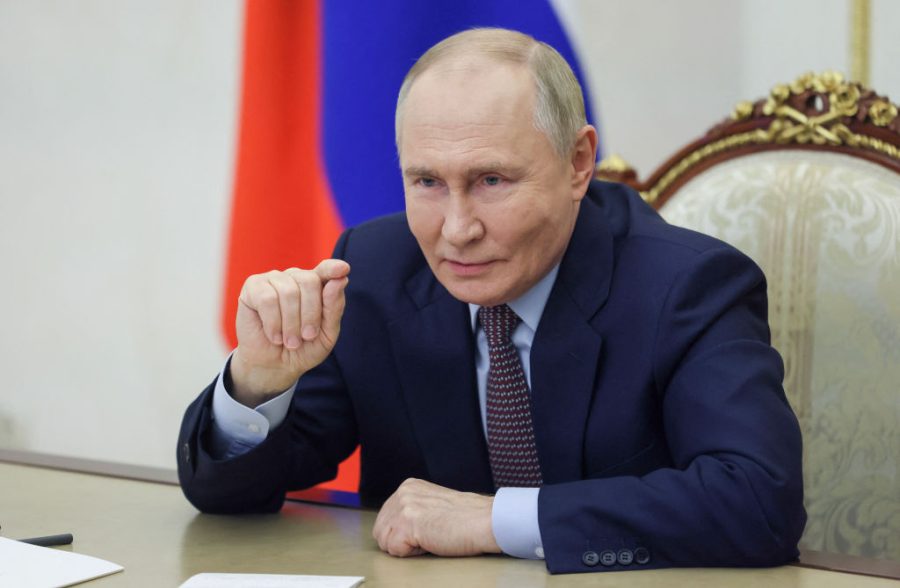Ken McCallum, head of the Security Service (MI5), has warned of the serious threat to Britain posed by the Russian and Iranian intelligence agencies. McCallum said in a speech yesterday that the Russian GRU was on a mission to generate ‘sustained mayhem on British and European streets’, deploying ‘arson, sabotage and more dangerous actions conducted with increasing recklessness’.
That the GRU is being highlighted demonstrates both how the threat to the UK is evolving, but also the changes underway in Russia’s intelligence agencies. Officially, since 2010 the GRU has been known as the ‘GU’, but everyone from Putin down still uses the old name. The GU, or Main Directorate of the General Staff, is Russia’s military intelligence service. It is a massive and sprawling empire, including not just the spies embedded as defence attaches abroad but hackers, spy satellites, analysts and the Spetsnaz special forces.
This will likely not be a short-term threat
It was the GRU that was behind the attempted murder of defector Sergei Skripal in Salisbury in 2018, and the GRU that is believed to be behind the assassination of defector Maxim Kuzminov in Spain in February. It was also the GRU that organised the arson attack on Ukrainian-owned warehouses in Leyton in March.
This is, after all, its job. While capable of subtle intelligence gathering, the GRU is also the lead agency for operating in dangerous territory and also for carrying out most of the rougher missions, often deliberately unsubtly, to make a point. Its specialist ‘wet work’ element – wet, as in, that it gets bloody – Unit 29155 has been implicated in sabotage and assassination operations across and beyond Europe. Thanks to Major General Andrei Averyanov, the head of the unit, the GRU is now also essentially in charge of the Africa Corps, the unfortunately-named force that took over the Wagner mercenary army’s troops and contracts there.
The SVR foreign intelligence service is still reeling from the impact of the mass expulsion of Russian diplomats across the globe in the past two and a half years. According to McCallum, of the more than 750 booted from Europe, ‘the great majority of them’ were spies working under diplomatic cover. Although the SVR is expanding its network of proxy agents and turning more to intelligence gathering in cyberspace, it is still on the back foot.
The Federal Security Service, or FSB, is primarily an internal security agency, yet it has been moving into foreign operations as well, first in the post-Soviet states bordering Russia, but increasingly further afield. Rather than working through rezidenturas – stations – inside embassies, the FSB tends to rely on clusters of ‘illegals’ (agents operating without diplomatic cover) within the Russian diaspora, inside other bodies, or remotely, through online communications. It is especially involved in political operations abroad though, from stirring up violent extremists to trying to suborn political elites.
That the GRU is so central to MI5’s current concerns demonstrates how Moscow’s strategy has moved into a more dangerous and disruptive phase. This phase is one that seems to date back to the middle of last year, even though it took months to become evident. The Kremlin realises that one of the potential points of failure for Ukraine is the West: if we stop or even scale back our military and financial assistance, then Kyiv will find itself in a very difficult position. Thus, the Russians are trying to disrupt Western societies and foment division within and between nations, in the hope of being able to undermine the will and ability to maintain this support.
As McCallum warned, the UK’s ‘leading role’ in supporting Ukraine means ‘we loom large in the fevered imagination of Putin’s regime’. As such, we can expect to be a particular target, not least as the USA – especially before November’s presidential elections – is being treated as out of bounds for physical sabotage.
Furthermore, this will likely not be a short-term threat. Whatever happens in Ukraine, we will likely be in a state of undeclared covert political war with Russia at least as long as Putin is in the Kremlin. The GRU is adapting to a full wartime footing, and expanding its repertoire of capabilities. Even Unit 29155, long amongst the more physical of its forces, reportedly now includes its own cyber unit, variously nicknamed ‘Bleeding Bear’ or ‘Ember Bear’.
Like the other Russian intelligence agencies, the GRU is turning to criminal gangs and other proxies to carry out operations where it has trouble inserting its own agents. It was likely local gangsters who carried out the hit on Kuzminov, for example, and in Poland right-wing extremists have been accused of carrying out arson attacks on their behalf. Indeed, in an age when criminals can be hired on the dark web, they may not even know they are doing Russia’s dirty work. One European security service recently foiled an attempt to hire some thugs to attack a critic of the regime, who thought they were punishing a straying spouse for his infidelity, for example.
In September, Sir Richard Moore, head of the Secret Intelligence Service (MI6) said that ‘the Russian intelligence service has gone a bit feral’. This is certainly true of the GRU – and the UK is definitely in its sights.








Comments